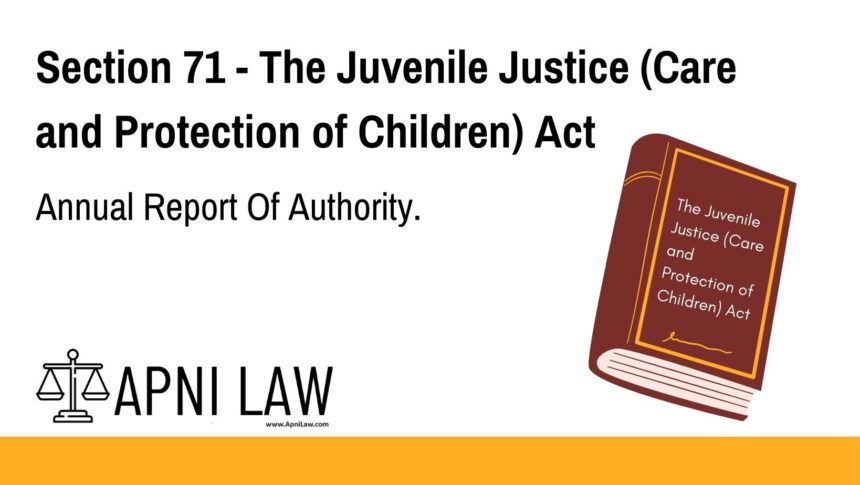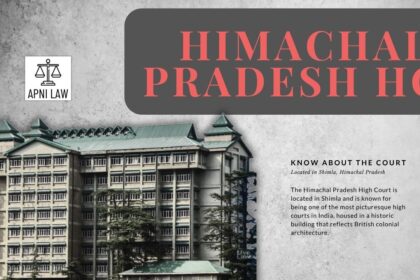Code: Section 71 of The Juvenile Justice (Care and Protection of Children) Act, 2015
Annual Report of Authority
(1) The Authority shall submit an annual report to the Central Government in such manner as may be prescribed.
(2) The Central Government shall cause the annual report of Authority to be laid before each House of Parliament.
Explanation of Section 71 JJ Act
Section 71 explains the reporting responsibility of the Authority formed under the Juvenile Justice Act. It ensures that the Authority is accountable for its work. Each year, it must prepare a report and send it to the Central Government. This report highlights the Authority’s actions and progress.
Once the report is received, the Central Government must place it before both Houses of Parliament. This process allows lawmakers to review and evaluate the Authority’s efforts. As a result, transparency and oversight are strengthened.
Key Takeaways:
- The Authority must submit a yearly report.
- The Central Government receives this report.
- The report is then shared with Parliament.
- This helps in public and legal oversight.
Illustration
Let’s take an example. The Central Adoption Resource Authority (CARA) manages adoption processes across India. At the end of each year, CARA prepares a report. It includes data on the number of adoptions, new policies, and any challenges faced. This report is sent to the Central Government, which places it before Parliament. This ensures that CARA’s work is reviewed regularly and publicly.
Common Questions and Answers on Section 71
1. What is the main goal of Section 71?
The goal is to ensure that the Authority is transparent and accountable for its actions.
2. Who submits the report?
The Authority created under the Juvenile Justice Act must submit the report. This could be CARA or another body notified by the government.
3. What does the report contain?
It includes updates on performance, actions taken, goals achieved, and future plans.
4. What is the role of the Central Government?
The government receives the report and ensures it is presented to Parliament.
5. Why is this report important?
It keeps the Authority’s work open to review. It also allows Parliament to check the progress and make changes if needed.
Conclusion
Section 71 of the Juvenile Justice Act is a key provision for accountability. It ensures that authorities like CARA regularly share their work with the government and Parliament. This process builds trust and encourages better performance in child care and protection services.
For more legal insights, visit ApniLaw.








